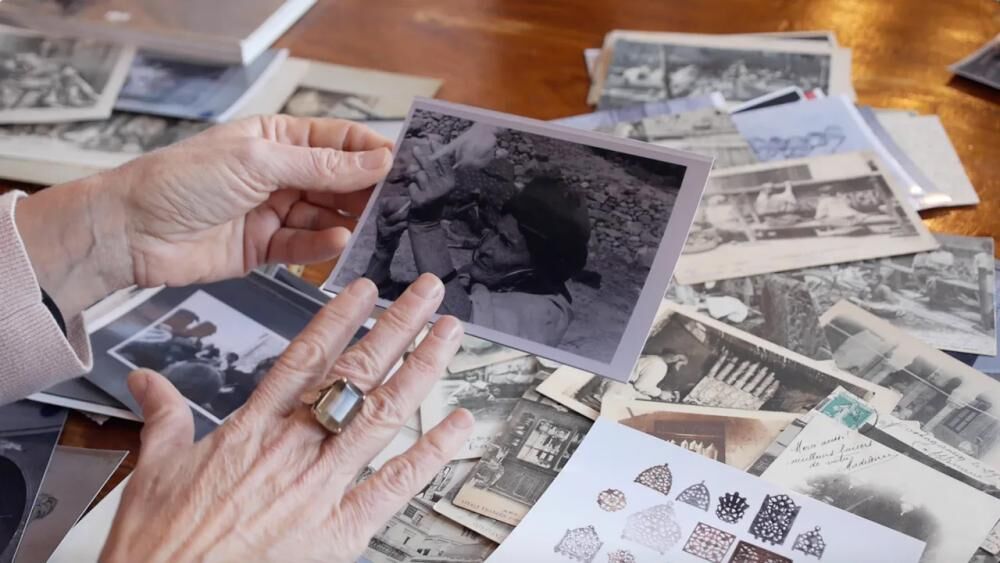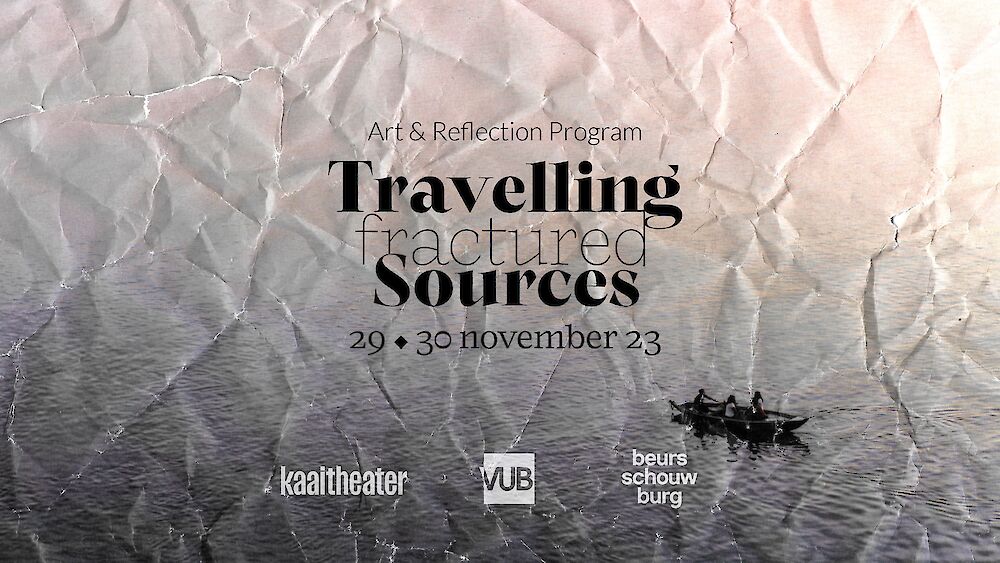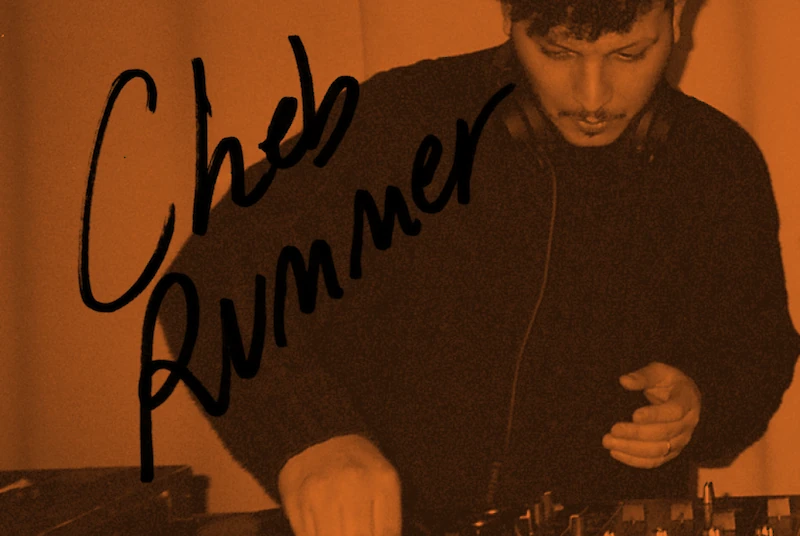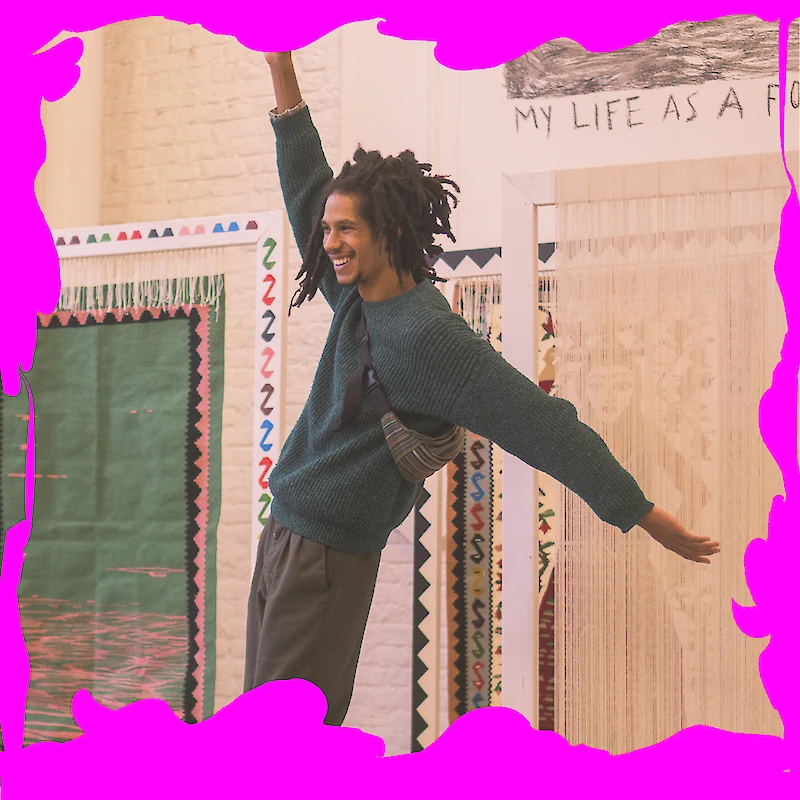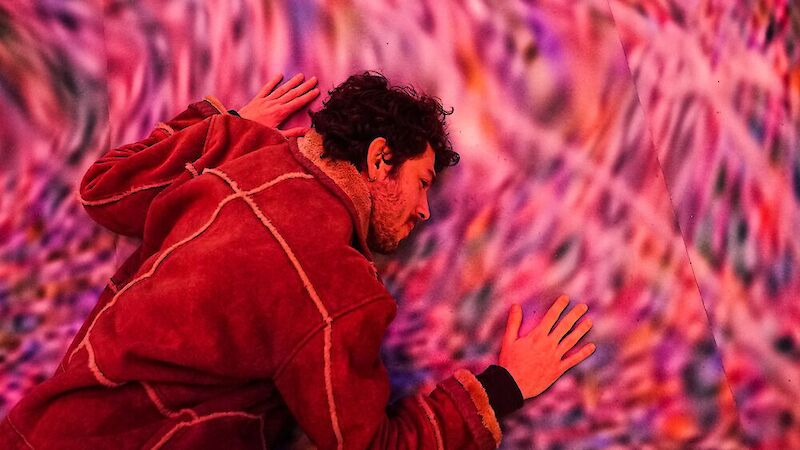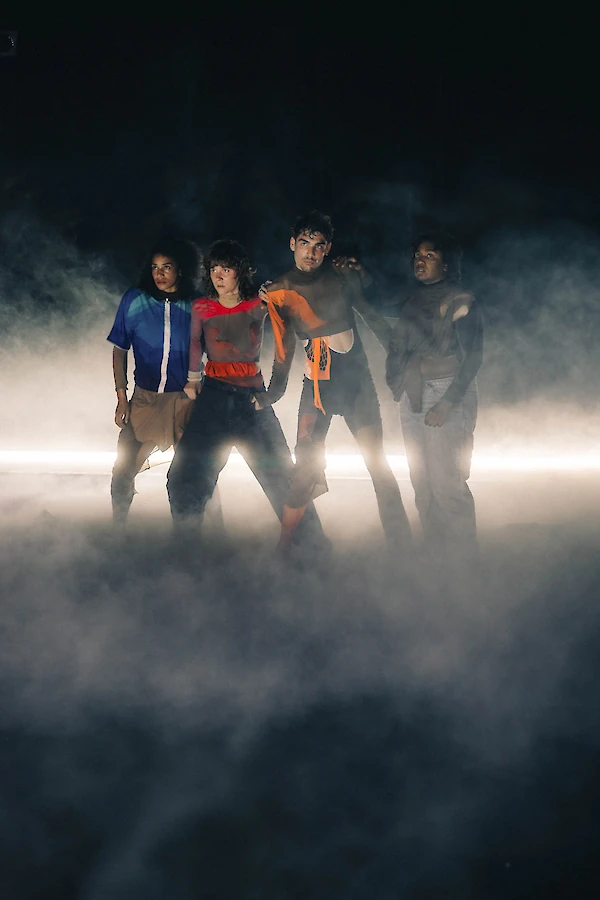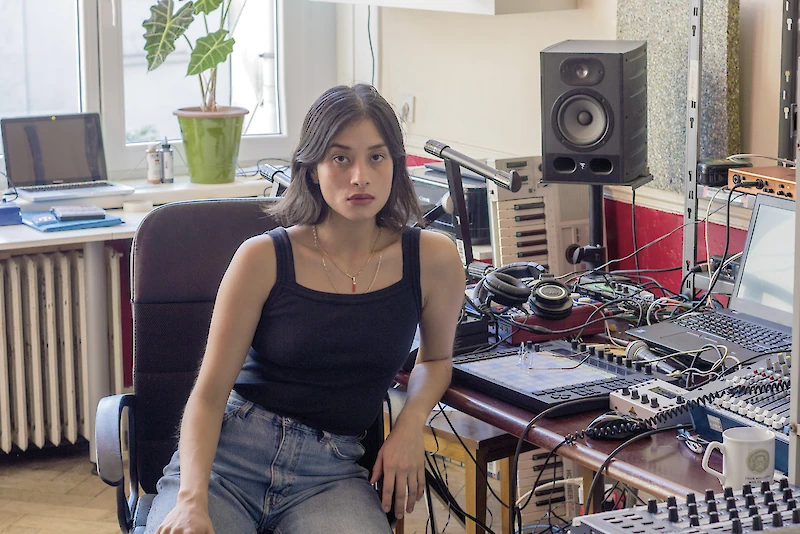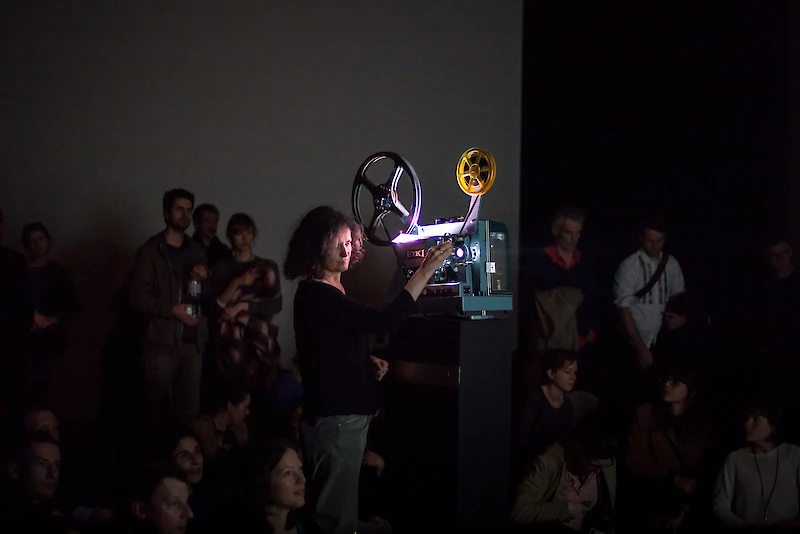Unlearning imperial violence with Dr. Ariella Aïsha Azoulay as part of the festival Travelling [fractured] Sources.
the bar will be open after the screening
Following the sudden cancellation of Travelling Sources, the curators restage parts of the original festival in a two-day program titled Travelling [fractured] Sources.
During these two days, we invite the audience to a film screening and an academic conversation with Dr. Ariella Aïsha Azoulay. This two-day format stays closer to professor Azoulay’s positionality, thinking and praxis as a self-identifying Jewish-Algerian-Palestinian unlearning the imperial history of her father as Israeli settler. She invites the audience on a journey through imperial archives narrating the histories that have extracted and displaced Jewish communities from North Africa and West Asia into a settler colonial power invading, unsettling and colonizing Palestinian territory.
Travelling [fractured] Sources aims to create a space for people belonging to dominant groups to revisit their imperial and colonial family histories as an essential part of standing in solidarity with those injured and violated by those histories.
The World Like A Jewel In The Hand by Ariella Aïsha Azoulay
Travelling [fractured] Sources starts with the film screening of Azoulay’s latest film essay on imperial plunder. The film takes the audience on a historical journey through imperial archives narrating the extraction of culture and arts from indigenous worlds. Azoulay educates the audience on how the destruction of indigenous worlds on the African continent (referencing histories a.o. in Algeria and the D.R. Congo) was foundational to constructing imperial worlds governed by colonial states such as France, Belgium and Israel.
Azoulay integrates a reflection of her own family history, being mobilised from Algerian jewish communities to settlers in Palestine, she sheds a new light on the partition of Jewish-Muslim worlds in North Africa and West Asia. Azoulay invites us to reclaim the world of skills, care for the world enshrined in stolen objects, and inhabit ruined worlds we are being told could no longer exist.
The screening is followed by a Q&A with Ariella Aïsha Azoulay via video call.
On Thursday 30.11 at 17:30, you can join Unlearning Imperial Violence at VUB.
An Academic Conversation with Dr. Ariella Aïsha Azoulay.
Ariella Aïsha Azoulay is an author, curator of anti-colonial archives, film essayist, and theorist of empires and its various technologies (from partition to photography). She is Professor of Modern Culture and Media and the Department of Comparative Literature at Brown University. Her work centers around unlearning imperial histories, engaging with archives to generate anti-colonial knowledge and generate potential histories.
Hari Prasad Sacré (curator) obtained a doctoral degree in educational sciences from Ghent University with his dissertation entitled Reading Illiteracy. His research discusses new forms of illiteracy arising in displaced communities travelling imperial borders. Overall, his academic and artistic work explores cultural translation as a pedagogical project for dialogue, solidarity and emancipation.
Arshia Ali Azmat (curator) is a graphic designer, community organiser and researcher affiliated with VUB. Her artistic and graphic work focuses on linking personal and global histories through storytelling and archival explorations. She is also contributing to a research project on vacant spaces in the city and their transformation from temporary occupation sites to permanent social infrastructures.
Hoda Siahtiri (curator) is an audio-visual and performance artist and researcher. Her artistic and educational background is in cinema and performing arts. She defines herself as a storyteller who narrates and mediates voices that have been silenced in the past. Siahtiri’s work centers around the feminine body, knowledge and ancestral heritage. She conducts a PhD-research on the singing tradition of Bakhtiari women in the west of Iran.
This programme is presented together with Kaaitheater & VUB.
